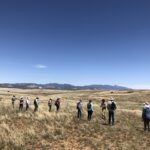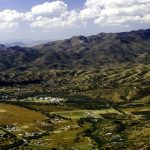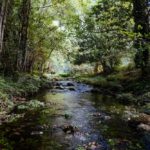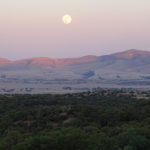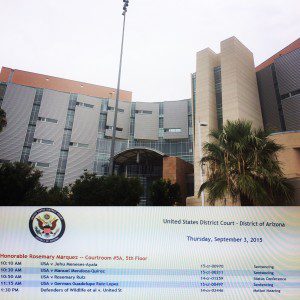 The Patagonia Area Resource Alliance and Defenders of Wildlife were in federal court in Tucson last Thursday to present oral arguments against the Forest Service’s unlawful approval of a mining exploration project in the Patagonia Mountains on the Coronado National Forest.
The Patagonia Area Resource Alliance and Defenders of Wildlife were in federal court in Tucson last Thursday to present oral arguments against the Forest Service’s unlawful approval of a mining exploration project in the Patagonia Mountains on the Coronado National Forest.
Over 20 people attended the court hearing in support of PARA, Defenders of Wildlife and the Patagonia Mountains.
Canadian mining company Regal Resources’ Sunnyside Project involves drilling six exploratory holes for copper deposits up to 6,500 feet deep roughly five miles from the Town of Patagonia.
The Forest Service issued a “categorical exclusion” decision which essentially fast-tracked the mineral drilling exploration and approved the project without doing any environmental assessments. The decision authorized Regal Resources to run drilling for one year, with a seven month stoppage during the breeding seasons of the Mexican spotted owl and Yellow-billed cuckoo.
Defenders of Wildlife Lawyer Jay Tutchton argued that the Forest Service’s approval of the Sunnyside project violates environmental laws and poses a potential threat to local, endangered species. The extensive mineral drilling and construction would run 24 hours a day, seven days a week with total project operations and reclamation lasting up to 3 years.

Mexican Spotted Owl ©Gooch Goodwin
The Patagonia Mountains support some of the world’s most threatened and endangered wildlife, including the jaguar, ocelot, lesser long-nosed bat, Mexican spotted owl, and yellow-billed cuckoo. Of particular concern is the Mexican spotted owl “Protected Activity Center” (PAC), prime habitat which is supposed to have the greatest protection by law and is occupied by the owls year-round. One of the project’s proposed drilling sites is less than 200 yards from a “nesting core area” of the PAC. The noise caused by the drills would be louder than a chainsaw and would disrupt about one-third of the Mexican spotted owls’ PAC, as well as the migratory corridors of jaguars and ocelots, Tutchton argued.
The Forest Service asked the court to dismiss the complaint. Forest Service lawyer Julia Thrower claimed the decision to grant a categorical exclusion complied with the National Environmental Protection Act and was not arbitrary or capricious.
“We’re optimistic that the judge will agree that the Forest Service’s attempt to avoid extra paperwork by skipping environmental assessments violates the law and places local, imperiled wildlife in even more jeopardy,” said Wendy Russell of the Patagonia Area Resource Alliance.
U.S. District Court Judge Rosemary Marquez said that she would take the matter under advisement and would issue her ruling before the proposed October 1 start date.

